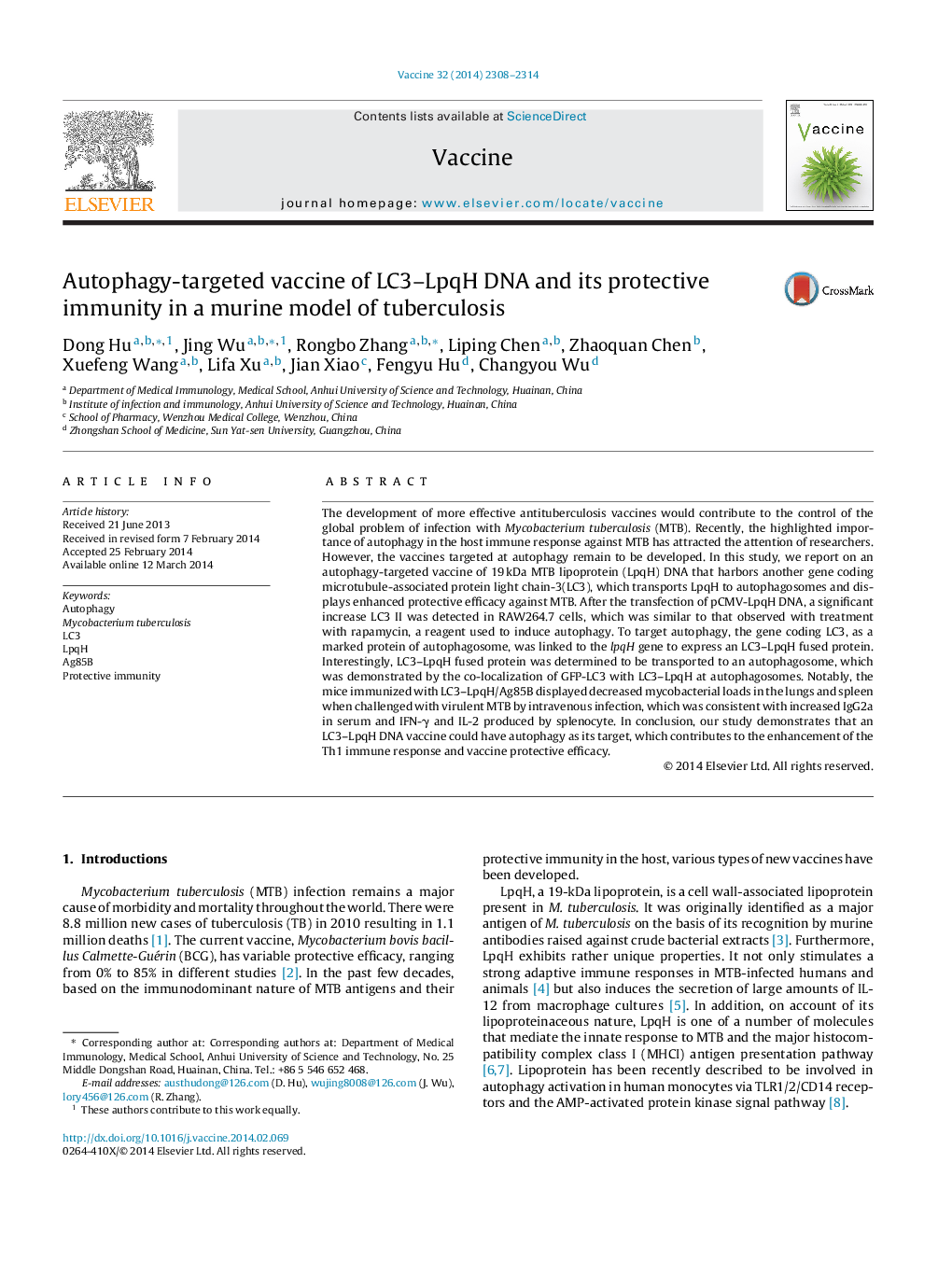| Article ID | Journal | Published Year | Pages | File Type |
|---|---|---|---|---|
| 10966649 | Vaccine | 2014 | 7 Pages |
Abstract
The development of more effective antituberculosis vaccines would contribute to the control of the global problem of infection with Mycobacterium tuberculosis (MTB). Recently, the highlighted importance of autophagy in the host immune response against MTB has attracted the attention of researchers. However, the vaccines targeted at autophagy remain to be developed. In this study, we report on an autophagy-targeted vaccine of 19 kDa MTB lipoprotein (LpqH) DNA that harbors another gene coding microtubule-associated protein light chain-3(LC3), which transports LpqH to autophagosomes and displays enhanced protective efficacy against MTB. After the transfection of pCMV-LpqH DNA, a significant increase LC3 II was detected in RAW264.7 cells, which was similar to that observed with treatment with rapamycin, a reagent used to induce autophagy. To target autophagy, the gene coding LC3, as a marked protein of autophagosome, was linked to the lpqH gene to express an LC3-LpqH fused protein. Interestingly, LC3-LpqH fused protein was determined to be transported to an autophagosome, which was demonstrated by the co-localization of GFP-LC3 with LC3-LpqH at autophagosomes. Notably, the mice immunized with LC3-LpqH/Ag85B displayed decreased mycobacterial loads in the lungs and spleen when challenged with virulent MTB by intravenous infection, which was consistent with increased IgG2a in serum and IFN-γ and IL-2 produced by splenocyte. In conclusion, our study demonstrates that an LC3-LpqH DNA vaccine could have autophagy as its target, which contributes to the enhancement of the Th1 immune response and vaccine protective efficacy.
Related Topics
Life Sciences
Immunology and Microbiology
Immunology
Authors
Dong Hu, Jing Wu, Rongbo Zhang, Liping Chen, Zhaoquan Chen, Xuefeng Wang, Lifa Xu, Jian Xiao, Fengyu Hu, Changyou Wu,
